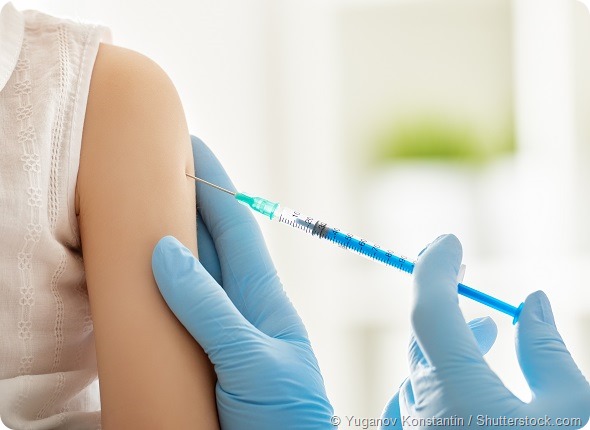The largest ever global survey of attitudes towards vaccines reported today that public confidence in vaccines varies widely between different regions of the world, with European respondents being most skeptical.

Vaccination programs have proved highly successful, eradicating many serious diseases with infant immunization, e.g., polio, whooping cough, diphtheria, tetanus. However, all children do not receive the recommended vaccinations.
In many settings this is due to barriers to access, but it is becoming increasingly common for parents in areas where immunization programs are freely available to choose not to have their child vaccinated.
These parents, having researched the area on the internet, decide that immunization is either unnecessary, too high risk or not aligned with their opinions.
Recent disease outbreaks occurring as a consequence of vaccination being refused, e.g., measles in the US, Europe, Asia, the Pacific and Africa, highlight the need to understand why some people have lost confidence in routine vaccination.
Vaccine confidence: an interview with Dr Heidi Larson
Vaccine confidence is the acceptance that vaccination serves the best health interests of the community.
The latest study, the largest of its kind, surveyed almost 66,000 people across 67 countries about their views on whether vaccines are important, safe, effective, and compatible with their religious beliefs.
Although the responses were positive overall, the study showed that confidence in vaccines varies widely between countries and regions around the world.
Of the ten countries in which people were most skeptical about vaccine safety, seven are in Europe (Armenia and Slovenia, Bosnia and Herzegovina, France, Greece, Russia, and Ukraine).
Vaccine confidence was lowest in France with 41% of those surveyed believing that vaccines are not safe.
People in Southeast Asian region showed the greatest confidence in vaccine safety; fewer than 1% of people surveyed in Bangladesh did not think vaccines are safe.
Our study suggests that the public largely understands the importance of vaccines, but safety is their primary concern. This could reflect a worrying confidence gap and shows that vaccine acceptance is precarious. The findings underline that the scientific and public health community needs to do much better at building public trust in the safety of vaccination.”
Dr Heidi Larson from the London School of Hygiene and Tropical Medicine.
Although in some countries people from certain religious groups were more skeptical of vaccines than others, there was not a particular religion that was associated with negative attitudes towards vaccines worldwide.
Globally, the most positive attitudes towards vaccines were found among people aged 65 years and over.
Further studies are required to identify the reasons behind the attitudes expressed, but this study give an insight into public opinion about vaccines on an unprecedented scale and provides a baseline from which changes in attitudes towards vaccines over time can be gauged.
Source:
Heidi J Larson, Alexandre de Figueiredo, Zhao Xiahong, William S Schulz, Pierre Verger, Iain G. Johnston, Alex R Cook, Nick S Jones. The State of Vaccine Confidence 2016: Global insights through a 67-country survey, EbioMedicine. DOI: 10.1016/j.ebiom.2016.08.042